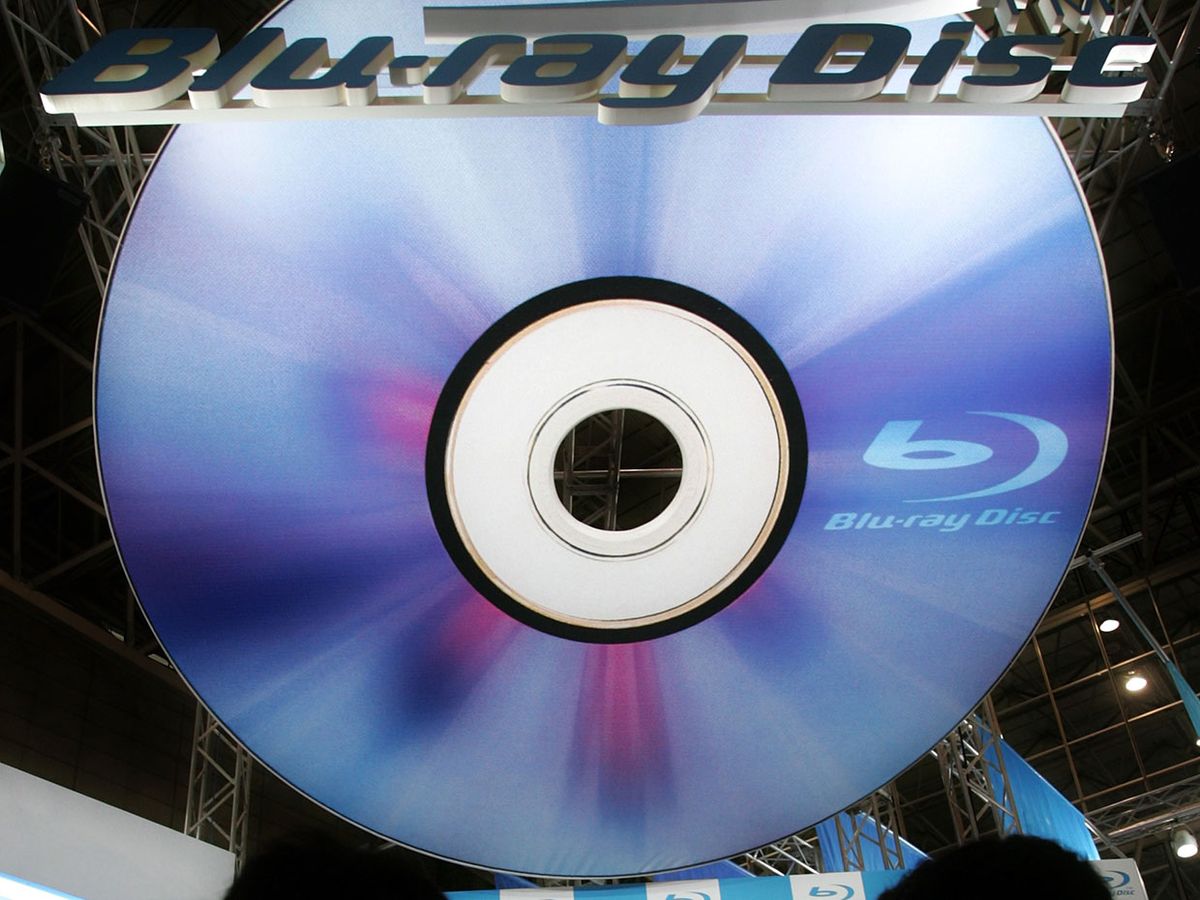By now you’ve probably heard the biggest news to come out of January’s Consumer Electronics Show (CES): Sony’s Blu-ray has beaten Toshiba’s HD-DVD in the high-definition DVD war. Yet the real winner may be Apple. Or Netflix. Or Comcast.
Until January, the major movie studios were evenly divided between the two formats. But then Time Warner, which had supported both, announced at CES, in Las Vegas, that it would no longer release its movies in HD-DVD. In Hollywood, where the line between perception and reality can be thinner than a laser beam, this was taken as a complete victory for Blu-ray and, therefore, it was one.
It’s the very skinniness of blue lasers, thinner than red, that lets blue lasers read data when it’s packed five times as densely as it is on today’s CDs and DVDs. Both Sony and Toshiba used this one scientific principle, yet they created different and incompatible formats. The incompatibility has frustrated movie studios and electronics manufacturers alike, which have watched consumers sit on the sidelines, uncertain what disks—and players—to buy. Having sold us VHS tapes and then DVDs, studios and manufacturers hope that now that Bluâ''ray has come out on top, we will buy our movie collections for a third time.
But there’s every reason to think that Sony’s victory will be for naught. Many of us won’t rebuild our video collections yet again, and if we do, it won’t be with thin little platters. We’ll simply download movies through our DSL and cable modems.
That might not have been apparent when Sony and Toshiba began work on next-generation DVDs back in the 1990s, a time when broadband was rare and slow. As late as 2000, when Sony showed its first prototype Blu-ray players, broadband penetration rates, including Japan’s and the United States’, were under 5 percent. Counting on consumers to download movies was unrealistic.
Today, however, throughout the developed world, broadband is used in at least half of all households. And while a high-def movie can take an hour to download even on a fast DSL connection, you can start watching within a minute; the data flow continues in the background.
And so when you look past the Blu-ray victory, the latest developments in digital movies are all about downloads, not disks.
At MacWorld, which directly followed CES, Steve Jobs announced a new download service for renting movies. As with music, Apple has struck deals with the major movie studios. You can begin a show on your computer or television and finish watching it on your iPod or iPhone. The service started in February with 1000 movies, costing US $2.99 to $3.99 each.
Apple’s biggest competitor may be Netflix, which has deals with all the same studios. Subscribers can view hours and hours of movies without paying anything more than their current monthly subscriptions. Netflix relaunched the service in January with more than 6000 titles.
Back in February 2007, TiVo and Amazon started a movie partnership that lets you buy or rent movies, which get stored on your TiVo’s hard disk. A review by the Web magazine Engadget said, “If you already own a TiVo, then this is about as easy as movie downloading can get.”
Older download services are still around, such as Movielink, Vudu, and CinemaNow, which lets you buy some first-run movies, starting at $14.95, while they’re still in theaters.
Finally, at CES, Panasonic and Comcast showed a portable digital-video recorder with its own screen. At home, it’s like any DVR you might get from your cable company. But when you and the family go on vacation, just pull it out of its docking station. It comes with a 12-volt car adapter, so the kids can watch in the backseat and at the summer cottage.
So do we really need to trudge out to Blockbuster, Best Buy, or Wal-Mart for a disk? Or wait for the now-familiar red envelope from Netflix? A lot of companies, including Apple and Netflix itself, are betting no. Sony and the other movie studios, even though they get a cut from movie downloads, hope the competition is wrong. I don’t think they are.
